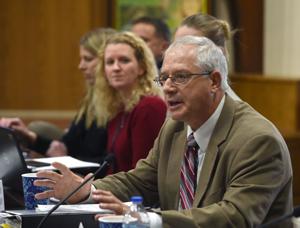
P resentism, as a philosophical concept, is a bias of evaluating, analysing and interpreting history, historical events, personalities, ideas and technologies—which belong to the past—on the touchstone of modern values, knowledge and perspectives. It sometimes involves projecting current norms, values and beliefs unto the past, which leads to misunderstanding, unfair judgment and decontextualising of history. While it can be beneficial in highlighting evolution of ideas, norms, values and moralities, presentism is generally considered as a flawed approach and harmful to historical understanding because it overlooks the complexity and cultural variations associated with the past.
In fact, many popularly held views about the past need to be critically enquired into and carefully evaluated before they can be taken as historically agreeable. Moreover, it is crucial for the past to be rigorously investigated and carefully explained, especially where the present derives legitimacy from the past, because the unscrupulous politicians, religious extremists and fundamentalists try not only to misrepresent but also willfully manipulate the past to bring it to serve their shortsighted agendas, in the present. An instructive example are the words Hindu and Hinduism as these are understood, in the present, and their actual origin and evolution.

The word Hindu as the name of a religion was never used until quite late, in about the Fourteenth Century. Even then, it was a geographical name. The areas across River Indus were called as Gandara and Hinush in Achaemenid Empire of Iran, which was referred to as Indos by Indo-Greeks.
The Arabs referred to the area beyond Indus as al-Hind; the people of this area came to be called Hindu. It was a geographical identity which included everyone. Later, the British labelled all sects of Hindus, other than followers of Islam, as Hinduism.
Romila Thaper argues that some scholars of the history of Hinduism would trace it back to the Indus civilisation, but little is known for sure about this due to lack of evidence. It is the embodiment of a variety of secs, belief systems and ritual practices, come down to the present. Therefore, it is not possible to date it precisely unlike Jainism, Buddhism, Christianity and Islam which were all founded at a particular point in time, by a historical person.
It makes them different from Hinduism. Nevertheless, presentism condemns us to bracket Hinduism with other religious traditions, as if it were one of the homogeneous religious traditions based on a holy book and a prophet. The present, quite often than not, makes use of the past either in detrimental ways in which it is instrumentalised to become a part of various political ploys, or in a positive manner to overstretch to claim an legitimacy to some enviable inheritance.
Thus, history has been used, in multiple ways, in contemporary times to forge desirable national and religious identities. To tone down this erratic tendency, the focus on political and dynastic history should be drastically shifted to include social, cultural and economic histories. Moreover, it should be borne in mind that religion alone does not define a community.
It is crucial for the past to be rigorously investigated and carefully explained, especially where the present derives legitimacy from the past. The present should draw on the past to better understand the past as well as the present, not to use the past to legitimise the present. With the advancement of knowledge, we have more ways and techniques to discover new evidence and asking fresh question about the evidence.
This should lead to constructing a past that is more credible and precise. This is particularly important in cases of the remote past where evidence goes far beyond texts - to artefacts. For instance, the recent fast melting of glaciers, due to global warming, has revealed remains in the form of bodies and belongings giving rise to a new scientific field of historical enquiry called as glacial archaeology, the study of ancient artefacts coming down to us from melting glaciers.
As EH Carr states in his extraordinary treatise What is History? history is an unending dialogue between past and the present, new sources and new methods of analyses lead to fresh perspectives, historical readings different from previous ones. A frequently asked question is: since historical facts do not change, why does history? The historical facts may not change, (sometimes they do change) but interpretation of those facts is susceptible to continuous change. “History is not just a directory of information; it also involves analysing and interpreting this information,” insists Romila Thapar in her book, The Past as Present: Forging Contemporary Identities Through History (2014).
We should also understand that historical knowledge is relative and dependent on perspective. Therefore, the concept of timeless and absolute objectivity is an unreal abstraction. Historical records are relative and the conception of reality too.
Similarly, truth is multi-faceted, every face of it being based on a perceived reality. An objective historian, according to Carr, is one “with a capacity to rise above the limited vision of his (her) own situation in society and in history.” Therefore, history is a constant and continuous process, process of understanding, recording and writing.
Winners of a situation (context) are doomed to be judged as losers in another. There is also need to imagine and write histories beyond the nationalist narratives. Very little attention has been paid in post-colonial South Asia to alternative social and political imaginaries and struggles, or methodologically to the histories from below.
Besides avoiding pitfalls of presentism, past should be taken as a repository of variegated experiences, meaningful and instructive to the present. The writer heads the History Department at University of Sargodha. He has worked as a research fellow at Royal Holloway College, University of London.
He can be reached at [email protected] His X handle: @AbrarZahoor1.















